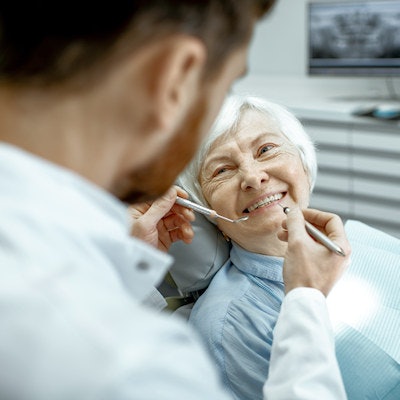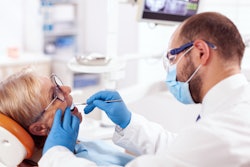
Perceived discrimination has a significant negative impact on the oral health of older patients, according to a study of Brazilian adults published recently in the Journal of Dentistry. To promote successful aging, providers must identify disparities to avoid perpetuating health inequalities.
"Discrimination may compromise access to healthcare, which is morally unacceptable, as it violates the values of equality, justice, and social solidarity," wrote the study authors, led by Dr. Maria Laura Braccini Fagundes of Federal University of Santa Maria in Brazil (J Dent, August 6, 2022, Vol. 125, 104249).
Differences in how members of nondominant groups are treated are typically based on personal characteristics like age, sex, sexual orientation, skin color, and ethnicity. Although it has been well documented that social discrimination negatively influences one's quality of life, the evidence on how perceived discrimination affects a person's oral health-related quality of life is sparse.
In the new study, researchers analyzed the association between perceived discrimination in health services and oral health-related quality of life among older adults in Brazil. The Oral Impacts on Daily Performances questionnaire was distributed to 5,432 participants ages 60 and older.
Within the article, oral health-related quality of life (OHRQoL) refers to a "multidimensional construct that is predominantly influenced by the social, cultural, and political context of a person's life." It encompasses physical function and disability, impairment and disease experience, social and psychological status, and oral health perceptions.
The mean impact on OHRQoL was higher in patients who experienced discrimination within healthcare compared to those who did not, according to the self-reported questionnaire distributed to participants. Researchers stressed the effects that discriminatory acts have on the population's health and the need to confront discrimination.
"It is essential to address ingrained prejudices and negative views regarding certain patient groups in undergraduate programs and in training through teaching strategies aimed at transforming popular myths and beliefs concerning fundamental human rights," wrote the study authors.
The findings build on prior studies, which have verified that perceived discrimination is negatively associated with preventive dental attendance. Participation in health-related behaviors is crucial for promoting health and preventing oral diseases. However, discrimination may dissipate a patient's protective resources and increase their vulnerability to disease, thereby negatively impacting their OHRQoL.
Previous studies have also shown that perceived discrimination is a stressor commonly leading to increased engagement in unhealthy behaviors like smoking, excessive drinking, and overeating. Experiences of discrimination have also been linked to potential risk factors for diseases, including substance use, high blood pressure, and obesity. Discrimination is associated with poorer mental health, decreased life satisfaction, depressive symptoms, worse self-rated health, and worse quality of life.
Within healthcare, discrimination can be expressed through treatment refusal or neglect, harassment, and delays without appropriate justification. People who experience greater levels of discrimination tend to seek services for curative reasons rather than preventive dental check-ups, leading to poorer oral health outcomes.
To promote successful aging, stressful situations must be identified and addressed to avoid the perpetuation of oral health inequalities.
"To combat intrinsic social behaviors, such as discrimination, it is essential to eliminate health inequities and to promote social justice," Fagundes and colleagues concluded.



















